Slava Ukraini! In early 2022 I began a Telegram channel aggregating news from a number of sources daily on the war in Ukraine. In June 2023 I began providing a daily draft for the Ukraine War Brief Podcast collecting news from over 70 sources daily, which formed the basis of the script. While the Podcast no longer exists I have continued to make this Brief available for my followers here on Substack for those who wish to keep up with the news from the war.
If you find the Brief informative I would appreciate it if you shared it with others.
All the latest news on the Russo-Ukraine War 6 days per week
ALONG THE CONTACT LINE
GSAFU Morning Report
For: May 156, 2025
The General Staff of the Armed Forces of Ukraine in its Operational Information update at 08:00 on May 25 stated that day 1177 of the full-scale invasion of the Russian Federation against Ukraine had begun.
The situation on the line of combat remains tense in some sectors. Ukrainian defenders continue to actively counteract the Russian aggressor, causing them significant losses in personnel, equipment and technology. Exhausting the enemy along the entire front line and continuing to disrupt the plans of Russian occupiers to advance deeper into the territory of Ukraine.
During the past day, 168 combat engagements took place.
Over the past 24 hours, the enemy carried out 1 missile strike, 68 air strikes, used 3,327 attack drones and fired approximately 5,300 artillery shells across the positions of Ukrainian forces and civilians.
Air Force Daily Report
62 ENEMY UAVS SHOT DOWN, 29 SIMULATOR UAVS FAILED TO REACH THEIR TARGETS (LOCATIONALLY LOST)
➖➖➖➖➖➖➖➖➖
On the night of May 15 (from 00:00 on May 15), the enemy attacked with 110 Shahed attack UAVs and simulator drones of various types from the directions: Bryansk, Kursk, Orel, Millerovo - Russia.
The air attack was repelled by aviation, anti-aircraft missile troops, electronic warfare units, and mobile fire groups of the Defense Forces of Ukraine.
As of 08:00, it has been confirmed that 62 Shahed attack UAVs (and other types of drones) have been shot down in the east, north, west, and center of the country.
29 enemy drones-simulators - lost in location (without negative consequences).
As a result of the enemy attack, Sumy, Dnipropetrovsk, Poltava, Kyiv, and Ivano-Frankivsk regions suffered.
Combat Operations in the Russian Federation
The Institute for the Study of War (ISW), a US based think tank, in its May 14 Russian Offensive Campaign Assessment reported that:
Sumy - Kursk Border: Fighting continued in Kursk Oblast on May 14.
Russian milbloggers claimed that Ukrainian forces unsuccessfully attacked near Tetkino and toward Novyi Put (both southwest of Glushkovo).
Belgorod Incursion: Fighting continued in Belgorod Oblast on May 14.
A Russian milblogger claimed on May 14 that Ukrainian forces unsuccessfully attacked near Popovka in northwesternmost Belgorod Oblast.
The Khortytsia operational-strategic group
(Responsible for the northeastern part of Ukraine. )
Kupyansk Sector: Russian forces recently advanced in the Kupyansk direction.
Geolocated footage published on May 13 indicates that Russian forces recently advanced northeast of Zapadne (north of Kupyansk).
Toretsk Sector: Russian forces recently advanced in the Toretsk direction.
Geolocated footage published on May 13 and 14 indicates that Russian forces recently advanced north of Toretsk and west of Yablunivka (southwest of Toretsk).
Additional geolocated footage published on May 14 indicates that Russian forces recently advanced southwest of Zorya (southwest of Toretsk).
The Tavria operational-strategic group
(Responsible for the central-eastern and southeastern part of Ukraine.)
Pokrovsk Sector : Ukrainian forces recently advanced in the Pokrovsk direction.
Geolocated footage published on May 13 indicates that Ukrainian forces recently advanced in western Myrne (east of Pokrovsk) and in central Lysivka (southeast of Pokrovsk).
Kurakhove Sector: Russian forces recently advanced in the Kurakhove direction.
Geolocated footage published on May 14 indicates that Russian forces recently advanced in southern Bahatyr (west of Kurakhove).
Velyka Novosilka Sector: Russian forces recently advanced in the Velyka Novosilka direction.
Geolocated footage published on May 14 indicates that Russian forces recently advanced east of Zelene Pole (west of Velyka Novosilka).
The Odesa operational-strategic group
(Responsible for Kherson, Qırım, (also known as Crimea) and the Black Sea.)
There have been no major changes to the combat environment since our last report.
TEMPORARILY OCCUPIED TERRITORIES
Fight for homeland: Crimean Tatars in Ukraine safeguard traditions.
With their ancestral homeland at the heart of future peace talks with Russia, Crimean Tatars [Qırımtatarlar (къырымтатарлар) or simply Qırımlılar (къырымлылар) in their own language] are fighting to keep their language and practices alive in Ukraine, teaching some children who have never, and may never, set foot in Crimea [Qırım (Къырым)], Reuters reports.
At a privately-run school just outside Kyiv, acting head teacher Olha Kycha says every child in her care carries "great importance" for Crimea's future - a new generation she believes will be crucial in the struggle to preserve Tatar identity.
Muslim Tatars, who have endured a history of persecution and forced relocation, regard Qirim, the focus of centuries of conquest and power struggles, as their rightful homeland.
More recently, Russia's annexation of the Black Sea peninsula in 2014 led to another wave of displacement, with many Qırımlılar fleeing to mainland Ukraine.
The territory's future has been pushed to the forefront of future peace talks between Ukraine and Russia after U.S. President Donald Trump's envoy Steve Witkoff set out a proposal that Russia should be handed U.S. legal recognition of its control of Crimea - an idea rejected by Kyiv.
In response, Ukrainian and European officials proposed deferring detailed discussions about territory until after a ceasefire is concluded to end Russia's war, with no mention of recognising Russian control over any Ukrainian territory.
Qırımlılar, who numbered around a quarter of a million in Ukraine's last official census in 2001, can do little more than watch, wait and hope.
"For us, every child who is here has huge value," Kycha said of her school, with its manicured gardens that she describes as "the only island, a piece of Qirim in the Kyiv region".
"Although there are not so many of them, each of them is really of great importance in the future after the de-occupation of Qirim."
The school's brochure says it "promotes the preservation of the traditions and customs of the Qırımlılar people, and the study of Qırımlılar poets and writers".
Sitting in the school's well-equipped, underground gym waiting for another air raid alert to end, six-year-old Rukhiye says she doesn't like being told to stay indoors. But her dream isn't to play outside, she says, it is "to go to Qirim".
Sitting in his mosque in the Ukrainian capital Kyiv, Ayder Rustemov, a 45-year-old mufti, recounts how he has lived around half his life in Qırım, returning with his family from deportation to Uzbekistan in 1988, only to flee after Russia's 2014 annexation.
"We live by faith," said Rustemov, elected mufti of Qırımlılar after Russia seized the territory.
"If we recognise Qirim as Russian ... I don't even know what the consequences could be. Just unimaginable consequences," he told Reuters, suggesting it would set a dangerous precedent for other land with disputed claims.
Sunni Muslims of Turkic origin, Qırımlılar were deported en masse to distant parts of Central Asia by Soviet forces during World War Two for alleged collaboration with the Nazis.
Qirim became part of Russia within the Soviet Union until 1954, when it was handed to Ukraine, also then a Soviet Republic, by Stalin's successor Nikita Khrushchev, a Ukrainian. Qırımlılar only began to return from exile in the 1980s.
Most Qırımlılar boycotted a referendum in 2014 which posed the question of rejoining Russia or restoring Qirim's status as part of Ukraine - Crimea's Moscow-backed leaders said 97% of voters were in favour of seceding in a vote condemned as illegal by Kyiv and the West.
Since then, Qırımlılar say they have been the target of Russian persecution: harassed, intimidated with threats and enforced disappearances. Thousands have fled, representatives say, although there is no official data.
The Kremlin could not be reached for immediate comment. Russian officials deny any modern-era persecution and say Russia has supported all peoples living in Crimea after years of neglect under Kyiv's rule.
"The parallels are obvious," Rustemov said, drawing a direct line to the actions of the Soviets to what Russia was doing now. "The goal of Russia has not changed, only the form has changed."
Russia says the question of Qirim's status has been closed "forever", but President Volodymyr Zelenskyy says Ukrainian sovereignty of the peninsula must be restored in efforts to end the war, triggered by Russia's full-scale invasion in 2022.
That stance has already put the Ukrainian leader at odds with Trump, who suggested on April 28 that Zelenskiy was ready to give up Qirim as the price of a peace deal with Russia.
Zelenskyy has repeatedly said Qirim is Ukrainian territory and recognising the peninsula as part of Russia would violate Ukraine's constitution. For now, many Qırımlılar can only hope for a return to their homeland.
"Those (Qırımlılar) who've stayed in Qirim probably have it harder," said Diliaver Saidakhmetov, 36, leaving a mosque in Kyiv. "Still, the majority of Qırımlılar that live in Qirim continue dreaming about a free Qirim."
THE HOME FRONT
Russia kills 5 civilians, injures 29 in Ukraine.
Russian attacks against Ukraine killed at least five people and injured 29 others over the past day, regional authorities said on May 15 ahead of expected peace talks in Istanbul, the Kyiv Independent reported citing local authorities.
A Russian missile strike on an industrial site in the city of Sumy killed three people and injured six others.
A woman and a man, aged 52 and 55, suffered injuries after Russia had dropped guided aerial bombs on the Bilopillia community, Sumy Oblast Governor Oleh Hryhorov said. A Russian drone also attacked a truck near the Terny village in the region, injuring a 40-year-old man.
A 60-year-old man was killed in a Russian attack on Kupiansk in Kharkiv Oblast, Governor Oleh Syniehubov said. Two men, aged 75 and 86, suffered injuries as a result of Russia's shelling near the village of Kozacha Lopan, he added. Another Russian attack injured a 58-year-old woman in Kupiansk-Vuzlovyi.
One person was killed in Torske in Donetsk Oblast, Governor Vadym Filashkin said. Seven more people were injured in the region over the past day.
In Kherson Oblast, Russian forces targeted 35 settlements, including the regional center of Kherson. Nine people were injured, Governor Oleksandr Prokudin reported.
Russian attacks injured a 67-year-old woman in the Nikopol district in Dnipropetrovsk Oblast, according to Governor Serhii Lysak. A nine-story building, two administrative buildings, a house, and a sports club were damaged.
RUSSIAN WORLD
Why Putin Refused to Meet Zelensky in Istanbul
Vladimir Putin never planned to accept Ukrainian counterpart Volodymyr Zelenskyy’s offer to meet one-on-one in Istanbul, sources in the Russian government and the Foreign Ministry and people close to the Kremlin have told The Moscow Times.
Sources said Putin does not see Zelenskyy as his equal and will only agree to meet him in the event of his "public capitulation,” he could not refuse the challenge outright because of U.S. President Donald Trump’s calls for the Russian leader to engage with his opponent.
Zelenskyy threw down the gauntlet to Putin on Sunday, hours after the Russian leader ignored Ukraine’s Western-backed call for a 30-day ceasefire and instead proposed renewing direct talks with Kyiv in Istanbul on Thursday.
By Wednesday, Moscow had still not confirmed who would represent Russia at the negotiating table. It finally confirmed that it would send a delegation headed by Kremlin aide Vladimir Medinsky in a directive published late Wednesday.
This silence was a deliberate tactic designed to keep Kyiv and its allies on edge and allow for a last-minute change of plans, former Russian diplomat Boris Bondarev told The Moscow Times.
Russian diplomacy largely follows the same protocols it did in the Soviet era, with all high-level talks meticulously prepared in advance.
As a result, spontaneous negotiations on the opponent’s terms — especially when Russia should hold the upper hand — are out of the question, a government official, a current diplomat and a Kremlin insider told The Moscow Times.
“Our leader doesn’t like being pressured. That’s a well-known fact,” added a former senior Kremlin official.
Russian propaganda and Putin himself have declared Zelenskyy to be illegitimate, meaning Moscow can only sign a peace deal with a new Ukrainian president or with the leadership of Ukraine’s parliament.
Russia has repeatedly tried to discredit the Ukrainian leader because of Zelensky’s defiance in the face of Russia’s invasion, which is a particular irritant for Moscow.
“Zelensky is only suitable for signing a capitulation. Period,” a current Russian diplomat said.
The main obstacle preventing Putin from publicly rebuking Zelensky appears to be Trump, who has urged Moscow to pursue a ceasefire and has hinted he may travel to Turkey himself if Putin attends.
“If Trump were to personally invite Putin, that would change everything. But Zelenskyy is not Putin’s equal, and he doesn’t want to talk to him face-to-face. After Zelensky’s ultimatums, agreeing to meet would look like backing down and losing face,” said Bondarev.
Putin’s primary goal is to convince Trump that Russia is genuinely interested in peace, which is why he proposed sending a delegation to Istanbul and resuming talks from where they left off in 2022, explained Alexander Gabuev, director of the Carnegie Russia Eurasia Center in Berlin.
“The Kremlin is trying to get Trump either to broker a favorable deal for Moscow or to conclude that peace is unattainable and blame Kyiv and its European allies. That way, the war in Ukraine would no longer be a U.S. priority. It would just be another file in Washington’s relationship with Moscow,” Gabuev said.
The problem is that Putin has not abandoned his maximalist demands for the war. He still wants to consolidate Russia’s territorial gains, trigger regime change in Kyiv and significantly reduce the size of Ukraine’s military. These goals are unacceptable to Washington and to Trump himself.
“This is where Putin’s strategy falls apart. He is not getting what he needs from Trump to achieve his domestic objectives. And if diplomacy fails, he will try to get it on the battlefield,” Gabuev concluded.
What may ultimately sink any chance of U.S.-Russia rapprochement, former diplomat Bondarev said, is the deeper structural conflict between the two nations as world powers.
“More specifically, the natural confrontation between Putin’s regime and America’s global interests. Putin sees this clearly, even if U.S. rhetoric tries to ignore it,” Bondarev said. “So what kind of rapprochement can we even talk about? The only acceptable outcome for Putin is Trump’s capitulation and America’s retreat into a regional power.”
RELATED INTERNATIONAL NEWS
Putin's no-show in Turkey throws Ukraine talks into disarray.
Russian President Vladimir Putin sent a second-tier team of negotiators to hold peace talks with Ukraine in Turkey on Thursday, spurning Kyiv's challenge to go there in person to meet President Volodymyr Zelenskyy.
Putin's no-show plunged prospects for the talks - which would be the first since the early weeks of the war - into confusion. Russia said they would take place in Istanbul in the second half of the day, but Turkey said no meeting was scheduled yet, Reuters reports.
U.S. President Donald Trump, on a tour of the Gulf, told reporters there would be no movement on peace talks in the absence of a meeting between himself and Putin.
"Nothing's going to happen until Putin and I get together," Trump told reporters aboard Air Force One before landing in Dubai. His comment seemed to further undermine the potential for diplomatic progress in Turkey.
The warring sides have been wrestling for months over the logistics of ceasefires and peace talks while trying to show Trump they are serious about trying to end what he calls "this stupid war".
Hundreds of thousands have been killed and wounded on both sides in the deadliest conflict in Europe since World War Two. Washington has threatened repeatedly to abandon its mediation efforts unless there is clear progress.
Zelenskyy, arriving in Ankara, described the Russian line-up of Putin aides and deputy ministers as "decorative". He said Ukraine would decide its next step after he had met Turkish President Tayyip Erdogan.
"We need to understand what kind of level the Russian delegation is, and what mandate they have and whether they can make any decisions," he said.
Russia said its team was in Istanbul and ready for serious work, and accused Ukraine of "trying to put on a show" around the negotiations.
Asked if Putin would join talks at some future point, Kremlin spokesman Dmitry Peskov said: "What kind of participation will be required further, at what level, it is too early to say now... The Russian delegation is ready, and it is waiting in Istanbul."
Russia said on Thursday its forces had captured two more settlements in Ukraine's Donetsk region. A spokeswoman for Russian Foreign Minister Sergei Lavrov pointedly reminded reporters of his comment last year that Ukraine was "getting smaller" in the absence of an agreement to stop fighting.
There was confusion in Istanbul, where some 200 reporters were gathered near the Dolmabahce Palace on the Bosphorus that the Russians had specified as the talks venue.
Zelenskyy had goaded Putin earlier this week by questioning if he was brave enough to show up. The Kremlin says Putin - who is also under threat of even tighter European sanctions to "suffocate" Russia's economy - does not respond to ultimatums.
The warring sides last held face-to-face talks - also in Istanbul - in March 2022, only weeks after Putin sent his army into Ukraine.
After leaning heavily on Ukraine and clashing with Zelenskyy at an Oval Office meeting in February, Trump has shown increasing impatience with Putin in recent weeks and threatened additional sanctions to hit Russian trade.
The U.S. president said on Thursday he would go to the talks in Turkey on Friday if it was "appropriate".
"I just hope Russia and Ukraine are able to do something. It has to stop," he said.
If the talks do go ahead, they will have to address a chasm between the two sides over a host of issues.
The Russian delegation is headed by presidential adviser Vladimir Medinsky, a former culture minister who has overseen the rewriting of history textbooks to reflect Moscow's narrative on the war. It includes a deputy defence minister, a deputy foreign minister and the head of military intelligence.
Key members of the team, including Medinsky, were also involved in the 2022 talks - an indication that Moscow wants to pick up where those left off.
But the terms under discussion then, while Ukraine was still reeling from the initial Russian invasion, would be deeply disadvantageous to Kyiv. They included a Russian demand for deep cuts to the size of Ukraine's military.
With Russian forces now in control of close to a fifth of Ukraine, Putin has held fast to his longstanding demands for Kyiv to cede territory, abandon its NATO membership ambitions and become a neutral country.
Ukraine rejects these terms as tantamount to capitulation, and is seeking guarantees of its future security from world powers, especially the United States.
Zelenskyy backs an immediate 30-day ceasefire, but Putin has said he first wants to start talks at which the details of such a truce could be discussed.
French Foreign Minister Jean-Noel Barrot said Zelenskyy had shown his good faith by coming to Turkey but there was an "empty chair" where Putin should be sitting.
"Putin is stalling and clearly has no desire to enter these peace negotiations, even when President Trump expressed his availability and his desire to facilitate these negotiations," he said.
Highlighting the level of tension between Russia and the U.S.-led alliance, Estonia said Moscow had briefly sent a military jet into NATO airspace over the Baltic Sea during an attempt by the Estonian navy to stop a Russian-bound oil tanker thought to be part of a "shadow fleet" defying Western sanctions on Moscow.
President Volodymyr Zelenskyy's did meet with his Turkish counterpart, Recep Tayyip Erdogan, in Ankara on May 15
Zelenskyy said on social media that he would like to “thank President Erdogan for organizing the possibility of direct negotiations.”
Time to suffocate Russia's economy after 17th EU sanctions package, France says.
The European Union must focus on a new sanctions package to suffocate Russia's economy and force President Vladimir Putin to end the war in Ukraine, Reuters reported citing France's foreign minister on Wednesday.
Speaking after the EU adopted a 17th sanctions package, Jean-Noel Barrot said that the impact of sanctions had been insufficient so far, and the bloc needed to work with the United States, where Congress has prepared crippling measures should U.S. President Donald Trump decide to pressure Moscow.
"We are adopting today a 17th sanctions (package)," Barrot told leading news channel BFM TV. "We will need to go further because the sanctions so far have not dissuaded Vladimir Putin from continuing his war of aggression.
"So we must prepare to expand devastating sanctions that could suffocate once and for all Russia's economy."
The 17th package sees some 200 'shadow fleet' tankers sanctioned. Two countries still need to consult their own parliaments on the details but the package is expected to be adopted next week by the bloc's foreign ministers, diplomatic sources said.
The latest tightening of sanctions comes as Moscow and Kyiv may hold their first peace talks in Istanbul on Thursday since the early days of Russia's February 2022 full-scale invasion of Ukraine.
In addition to the ships, the package adds new restrictions on 30 companies involved in the trade of dual-use goods while 75 individuals and entities will be listed for their links to Russia's military industrial complex.
The countries have also agreed to expand the legal base for their sanctions framework on Russian hybrid threats. One of the new measures will allow the EU to sanction fleets that destroy subsea cables and other physical assets. A further 20 entities and individuals were added to this list.
Some European leaders have threatened to impose further sanctions on Russia if Putin does not agree to a ceasefire in Ukraine, but they would face formidable political obstacles and would need U.S. support to succeed, officials and diplomats have said.
Barrot, who will be in Turkey on Thursday for a NATO foreign ministers meeting, said he would hold talks in Turkey with U.S. Senator Lindsey Graham on a U.S. sanctions bill he is putting together.
That bill would impose tariffs of 500% on countries that imported Russian oil, Barrot said.
"Russia has found ways to circumvent the blockage imposed by Europe and the United States so closing the tap would grab Russia by the throat," he said.
Diplomats said discussions on a new EU package would take several weeks and aim to target the banking, financial and energy sector, but would face difficulties in securing the necessary unanimity among the bloc's 27 members.
Under a human rights framework, the EU also agreed on Wednesday to place sanctions on judges and prosecutors involved in the cases against Vladimir Kara-Murza as well as Alexei Navalny, who died in an Arctic penal colony in February last year.
The countries have also agreed on an export ban on chemicals used in missile production, the diplomatic sources said.
MILITARY & TECH
Ukraine shows its latest 'ship-killer' Magura drone series to the public for the first time.
Ukraine's military intelligence (HUR) on May 14 for the first time presented its latest versatile Magura naval drones to the public, the Kyiv Indepedent reported.
The Magura drones, as well as the Sea Baby drones of the Security Service of Ukraine (SBU), have been pivotal in turning the tide of the war in the Black Sea, destroying or damaging multiple Russian ships and other assets.
HUR's Group 13 has deployed Magura drones to successfully hit 17 naval and aerial Russian targets. Fifteen of them, including two Mi-8 helicopters, two Su-30 fighter jets, and the Sergey Kotov, Ivanovets, and Ceasar Kunikov warships of Russia's Black Sea Fleet, have been destroyed, the agency said.
Several variants of the Magura drones exist, including the "ship-killer" V5, the V7 capable of carrying machine guns or anti-air missiles, and the multi-platform V6P.
As of 2024, Ukraine was reportedly able to destroy or disable one-third of the Russian Black Sea Fleet in a drone and missile campaign, despite Moscow's significant advantage in sheer naval power.
Black Sea hostilities have since then quieted down as Russia moved most of its naval assets from occupied Crimea further east and Ukraine managed to resume its maritime shipping.
That’s it for today’s Brief folks if you would like to keep up with events in Ukraine daily please consider subscribing, it’s free!





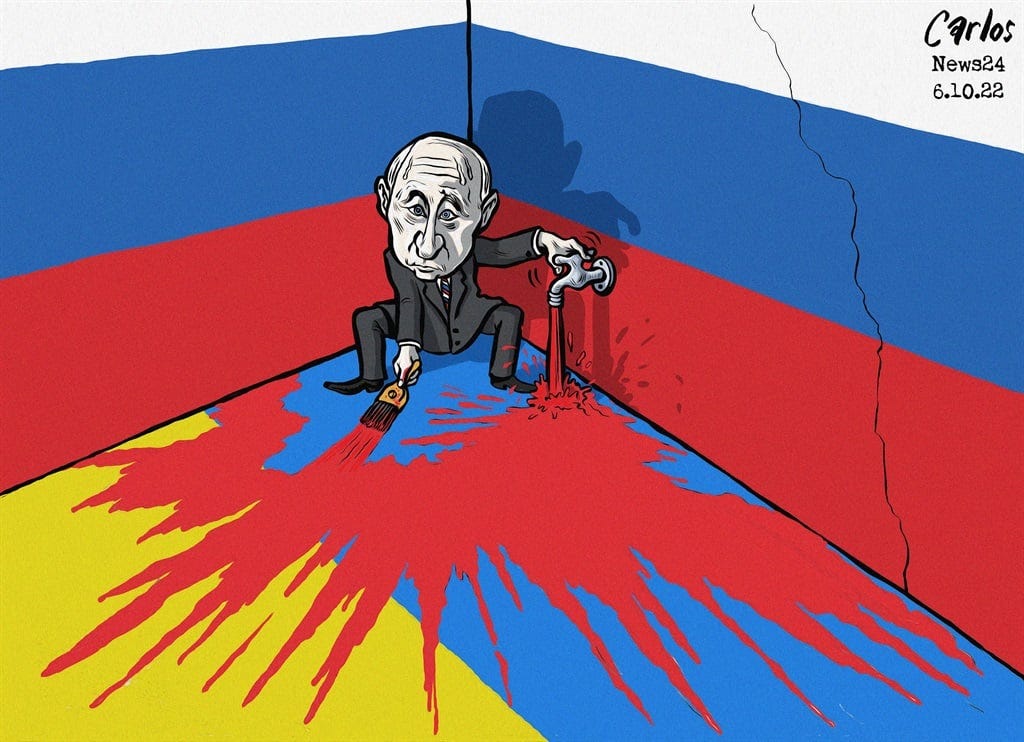

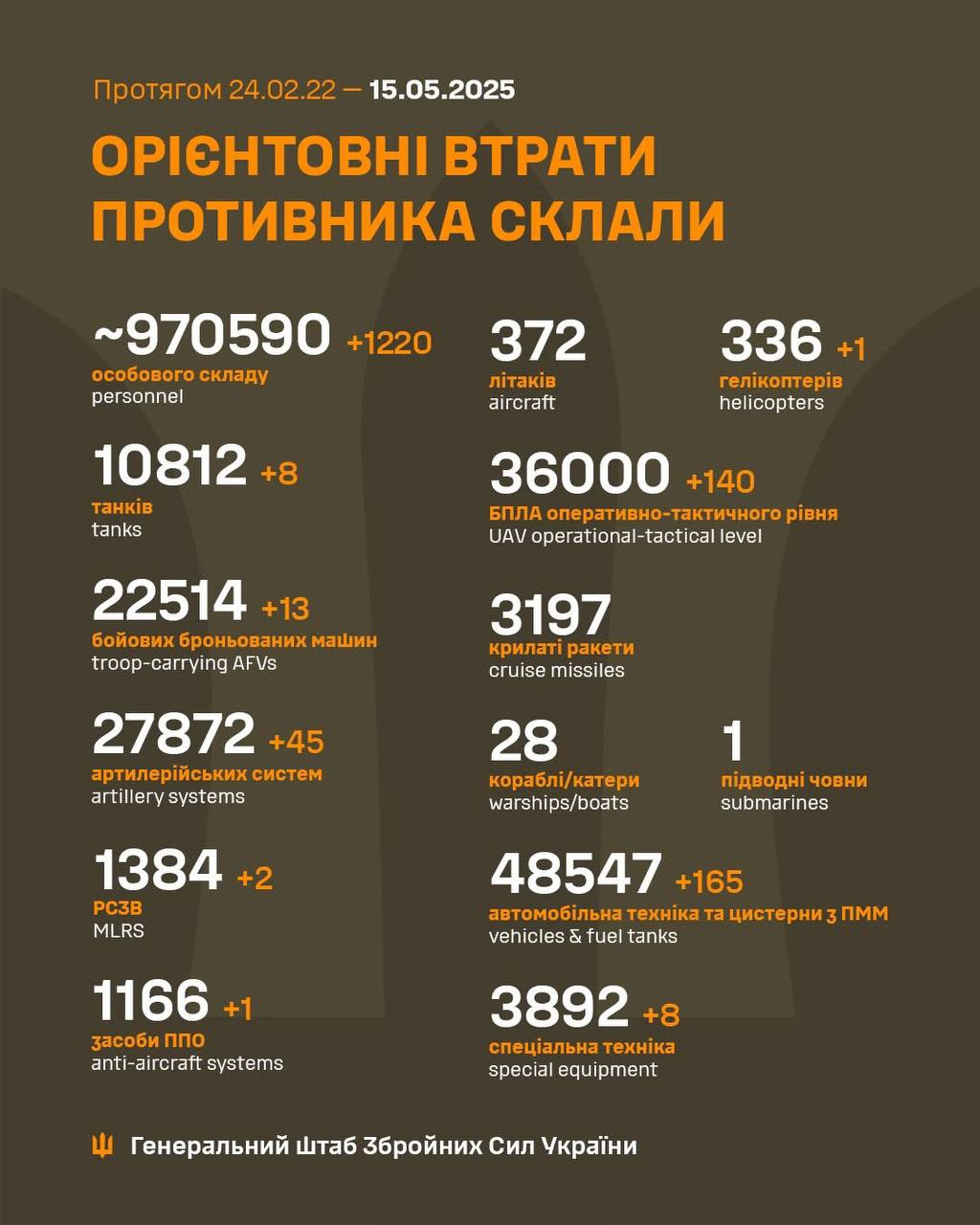
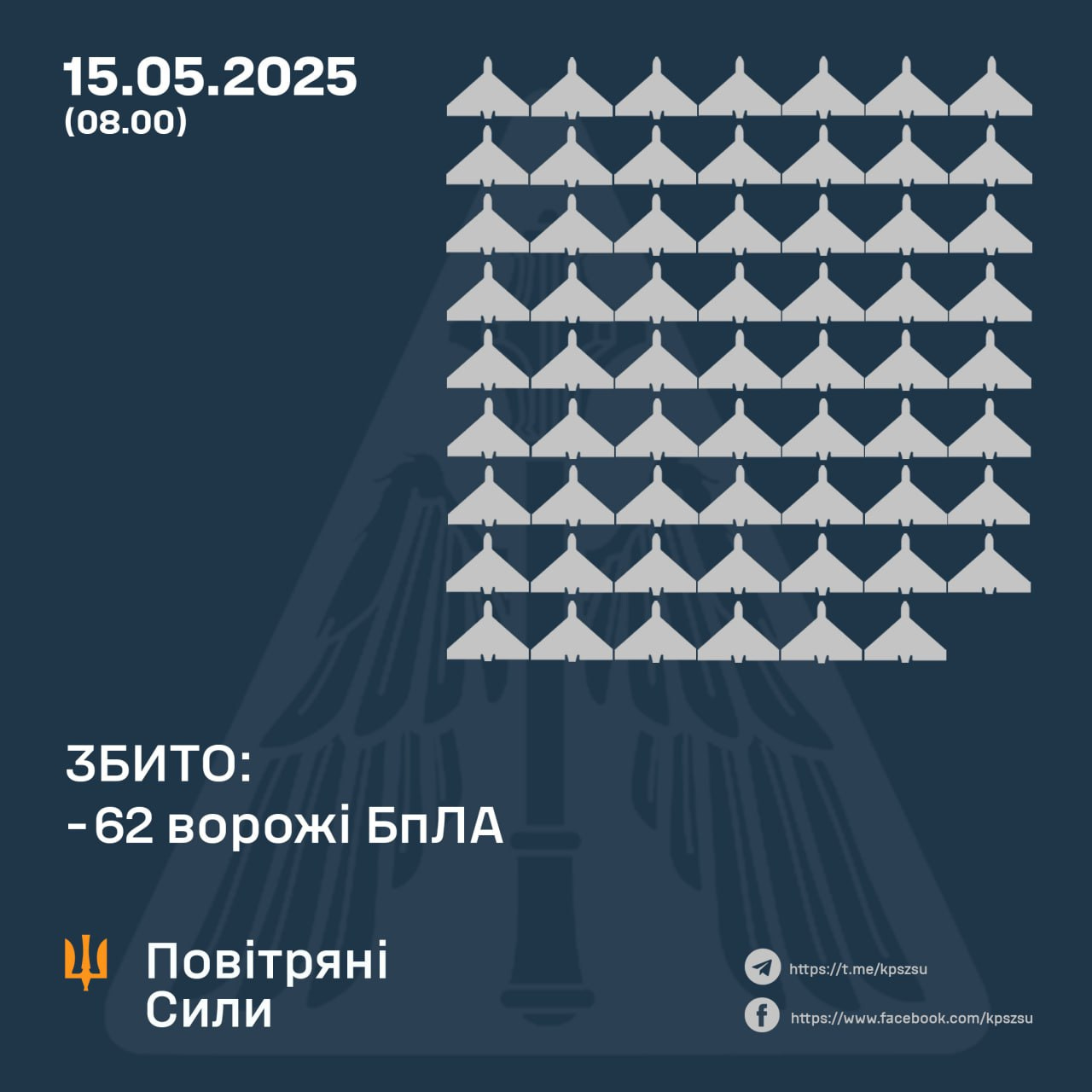
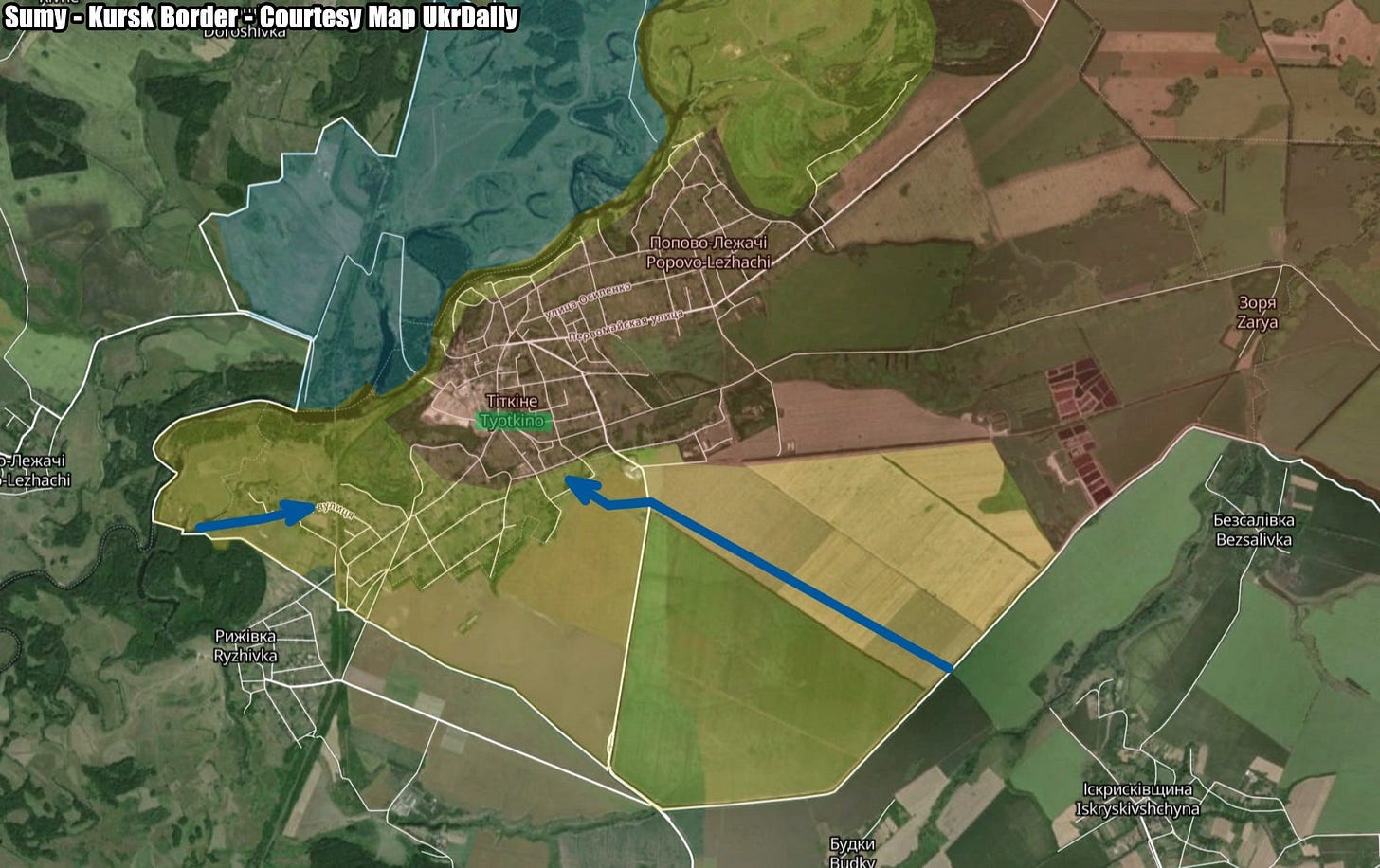

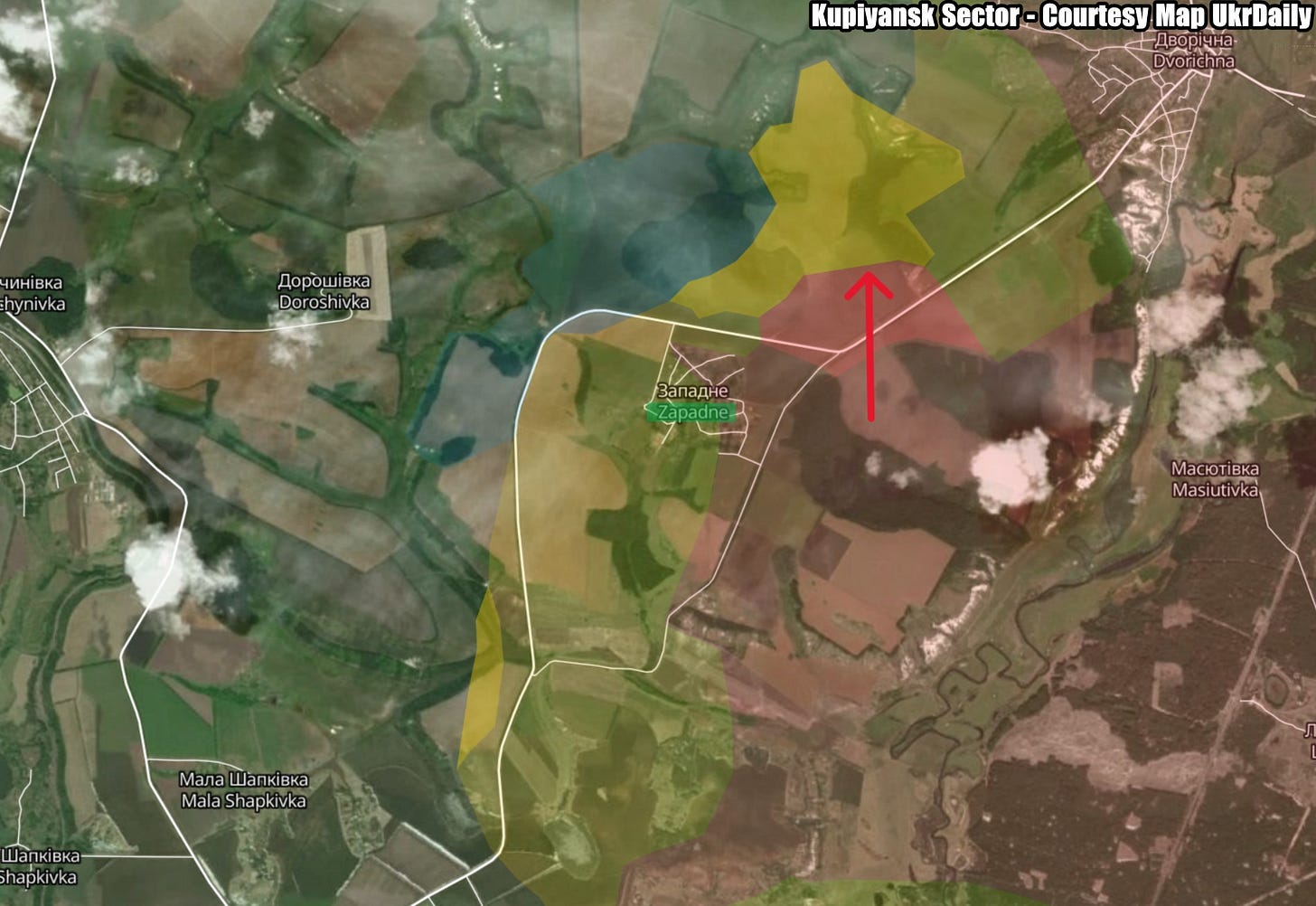

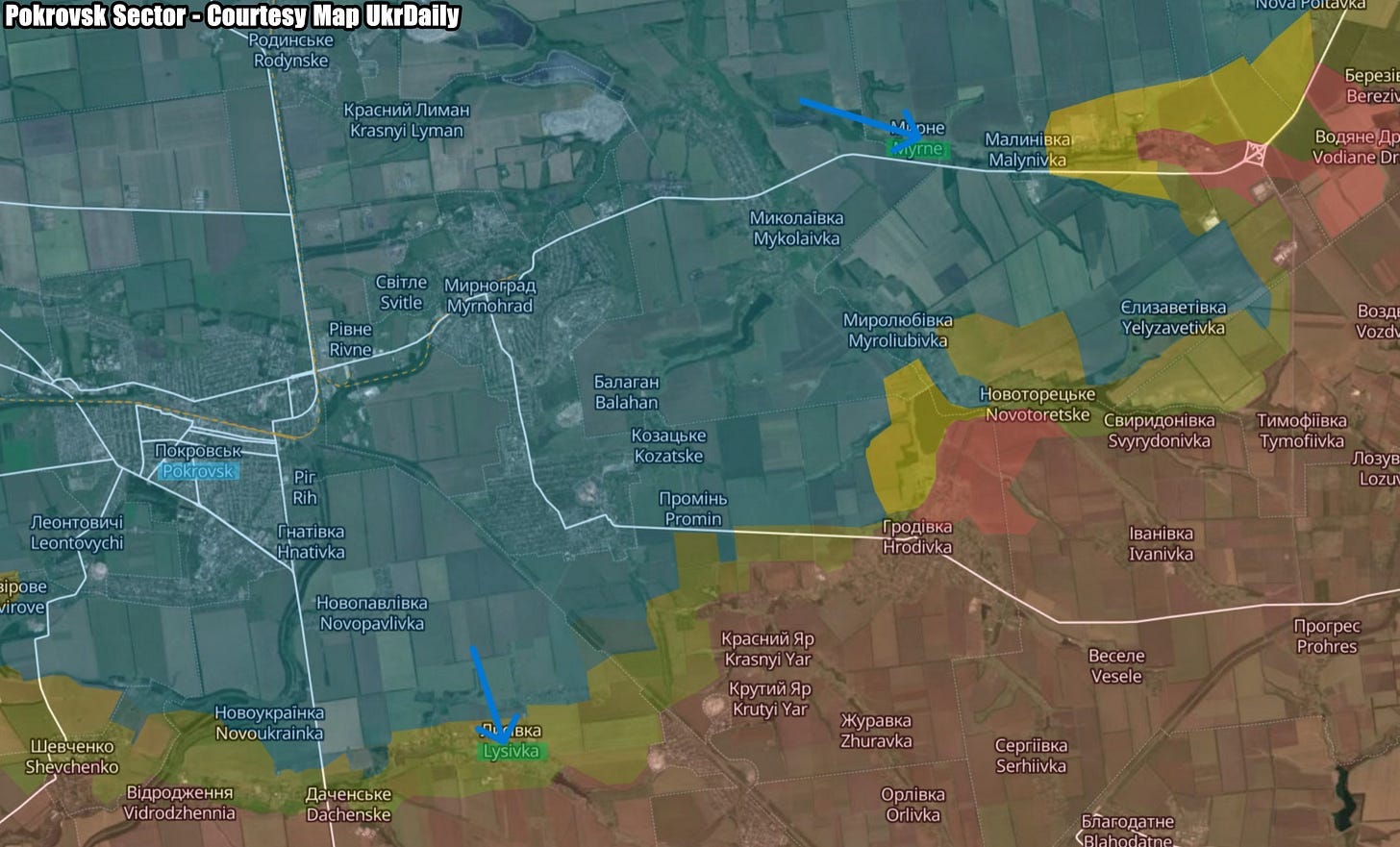
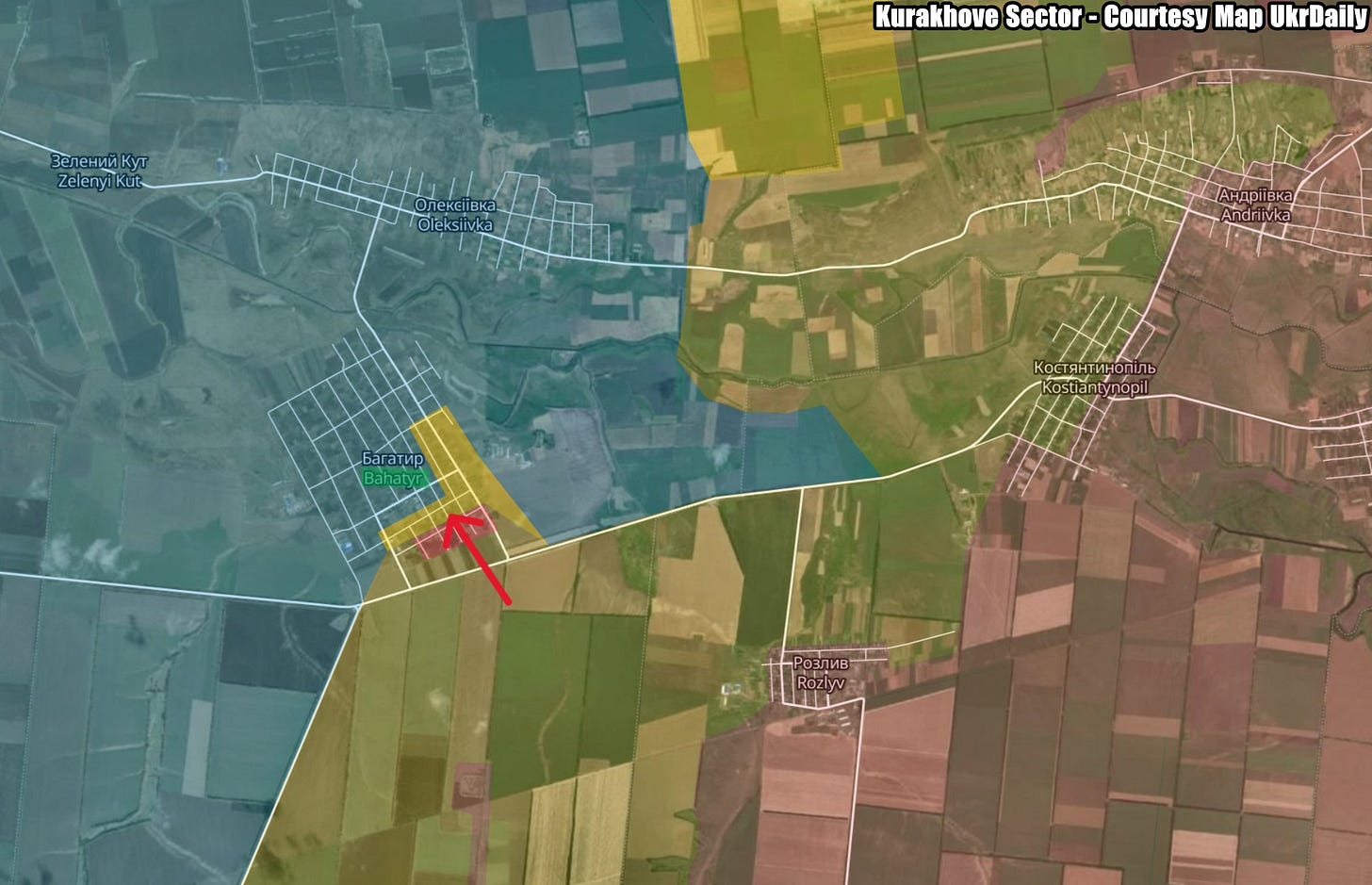
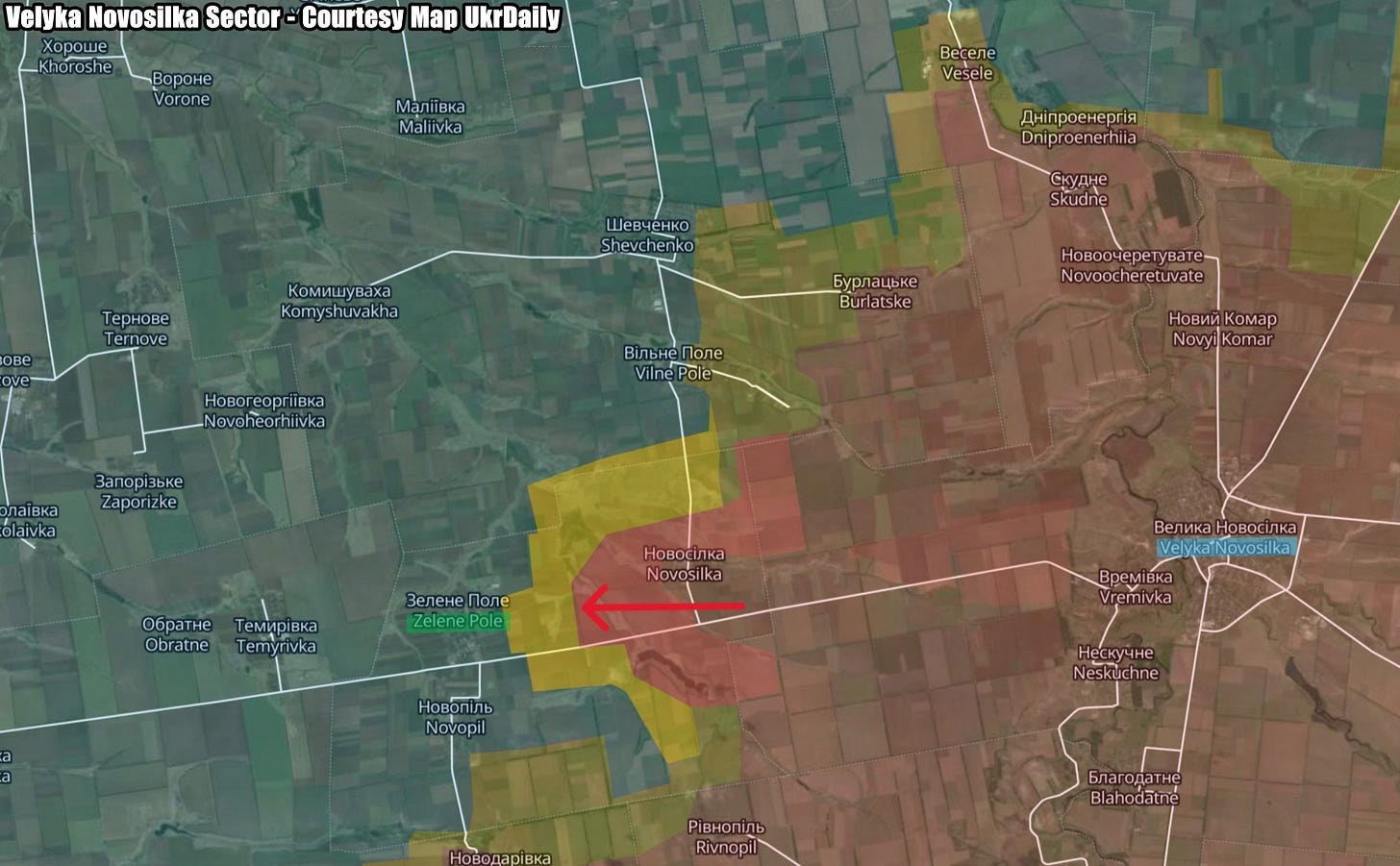
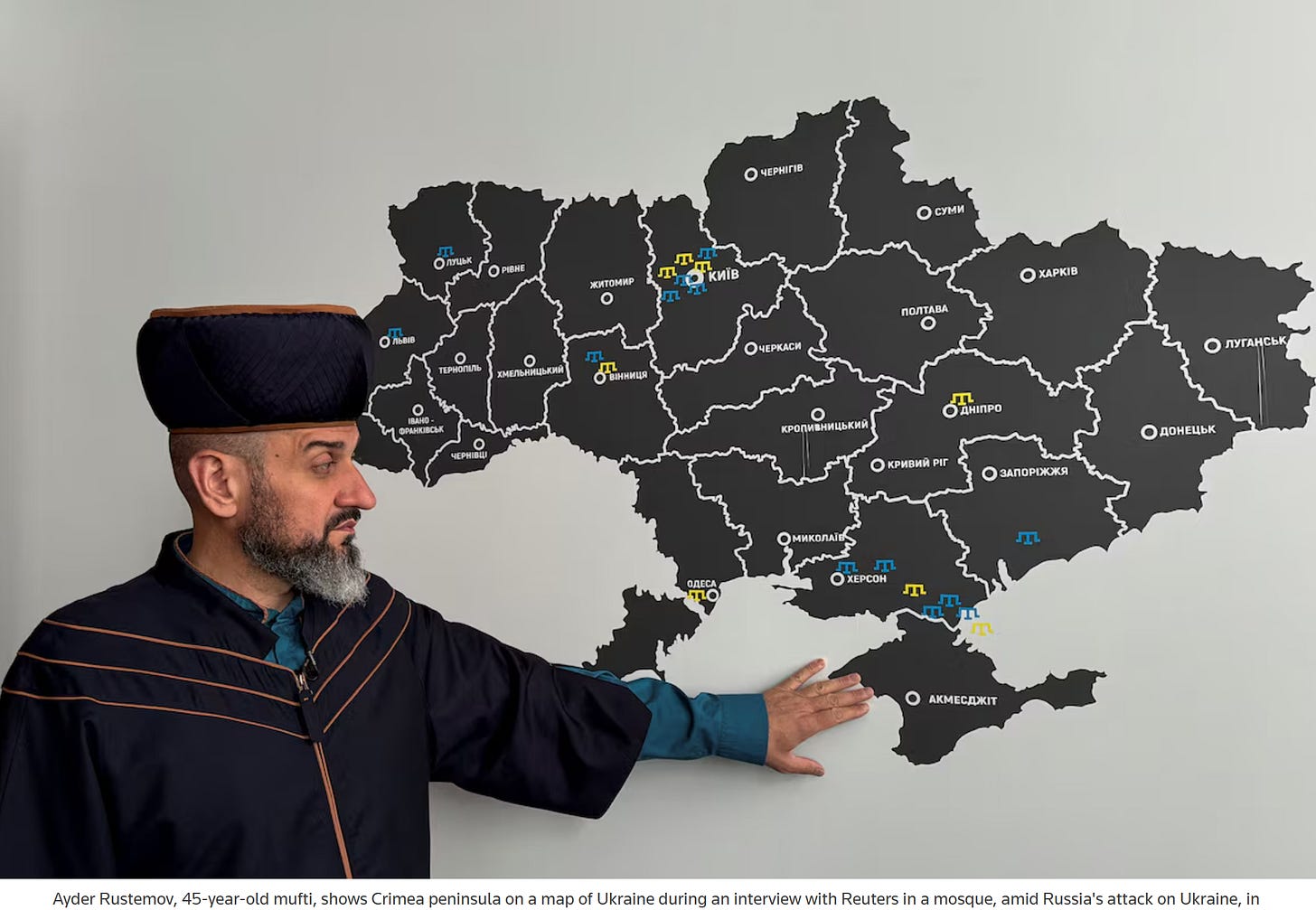

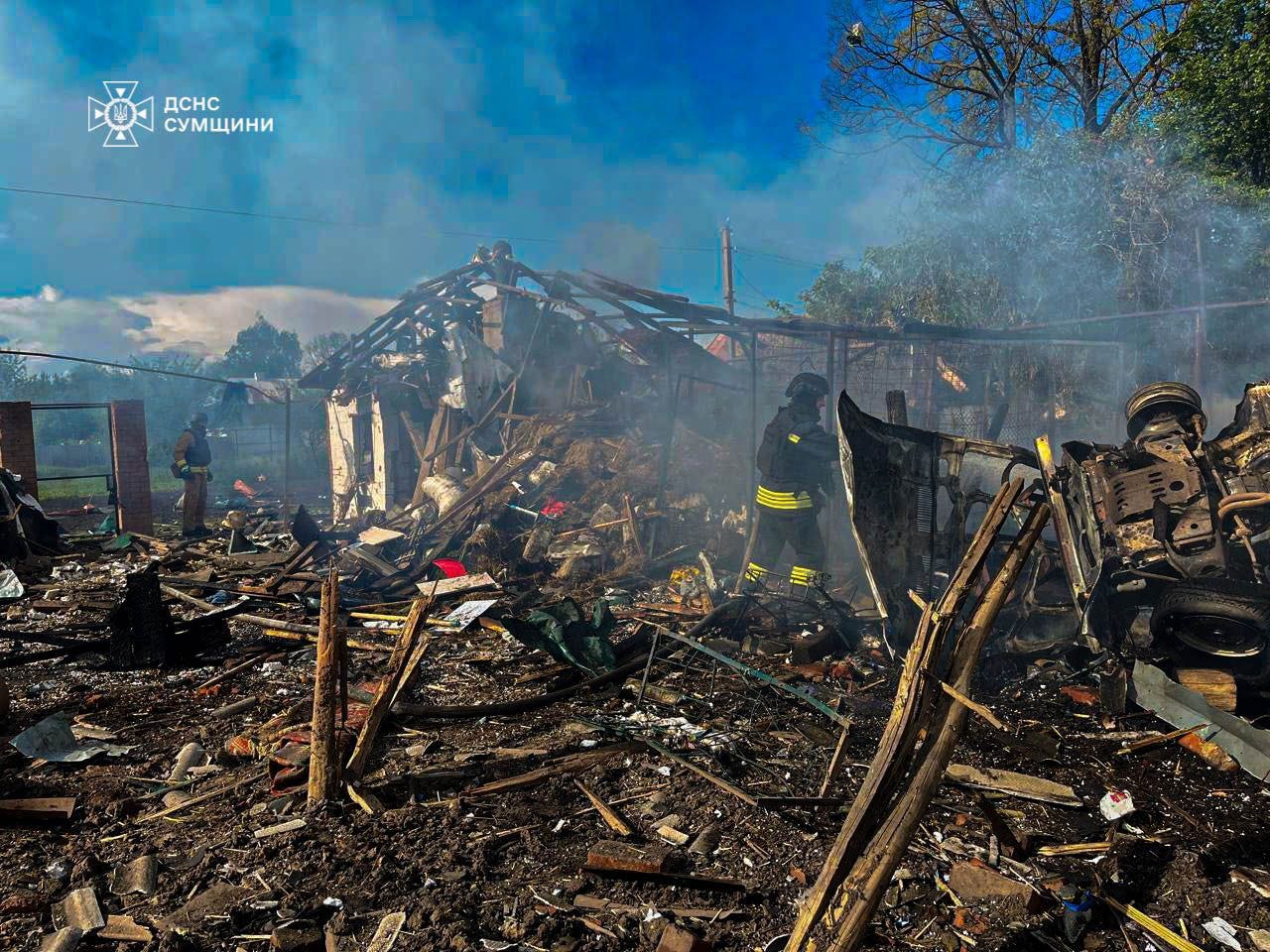
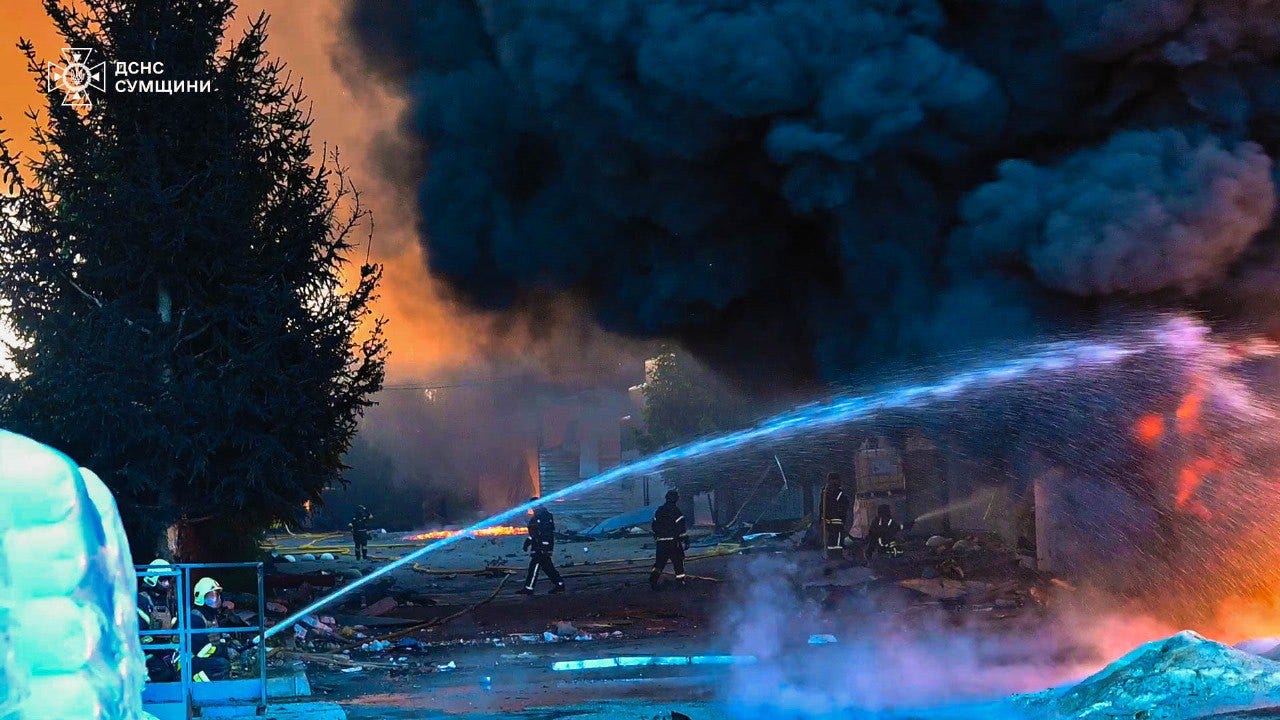


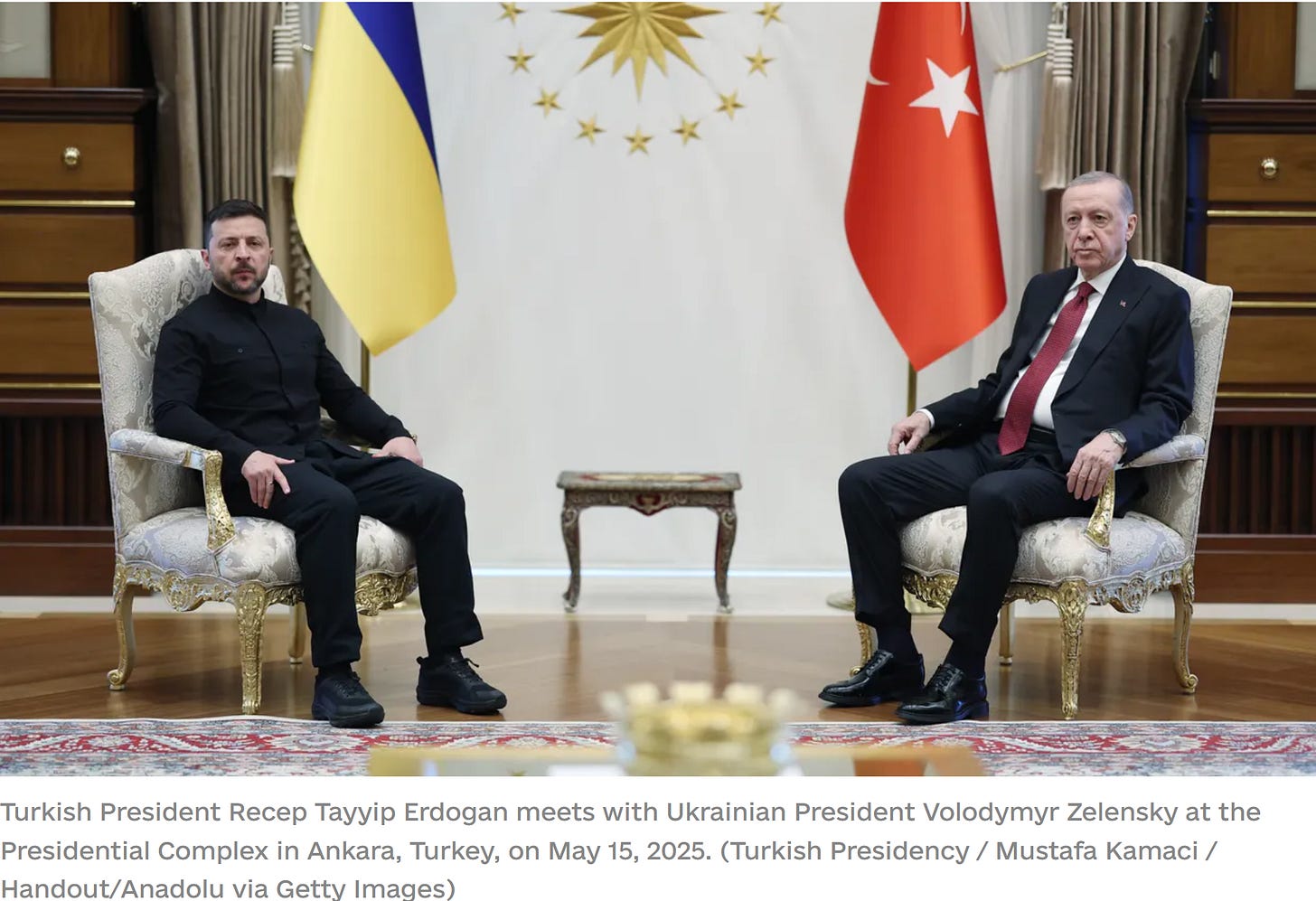
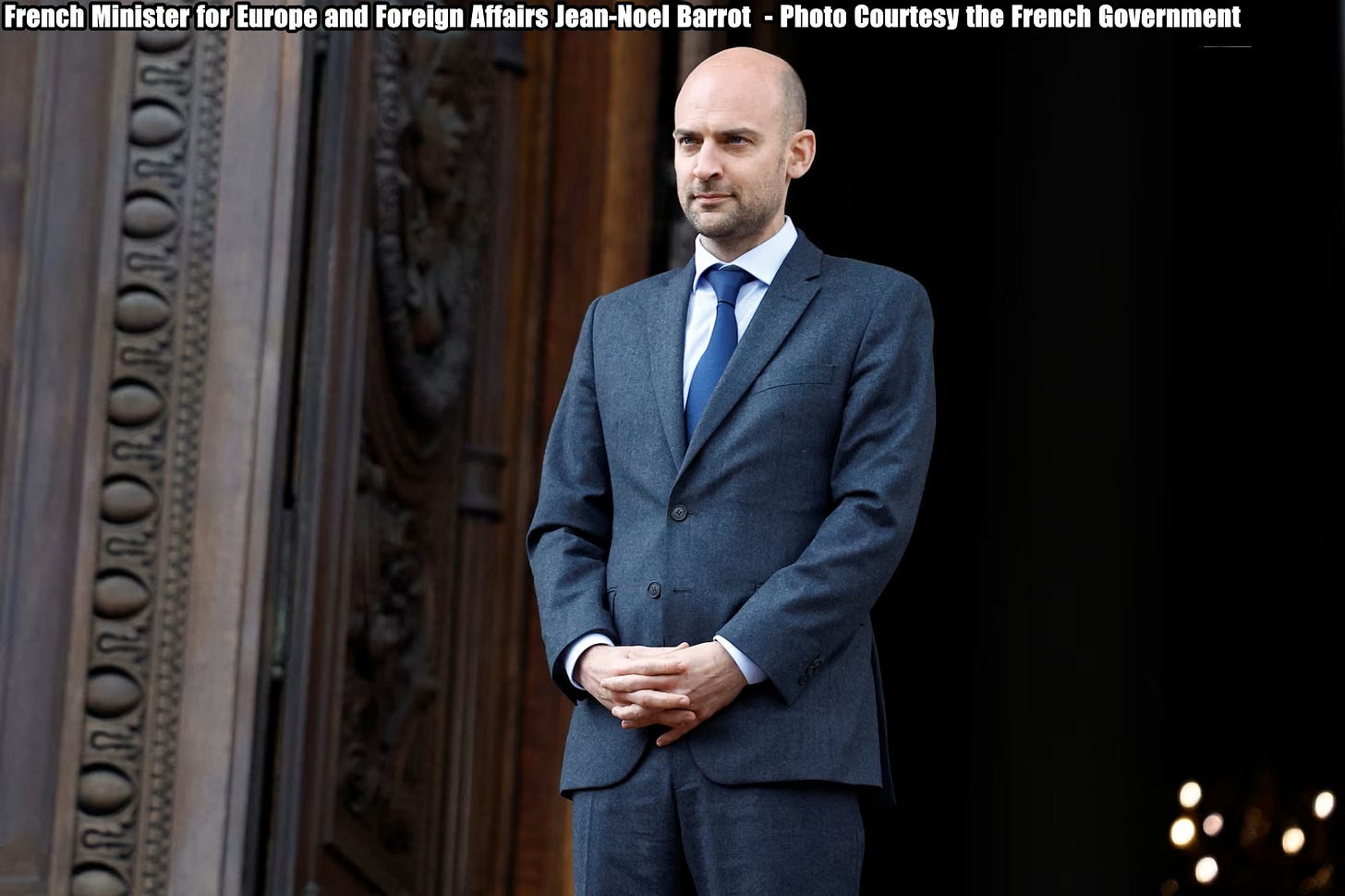
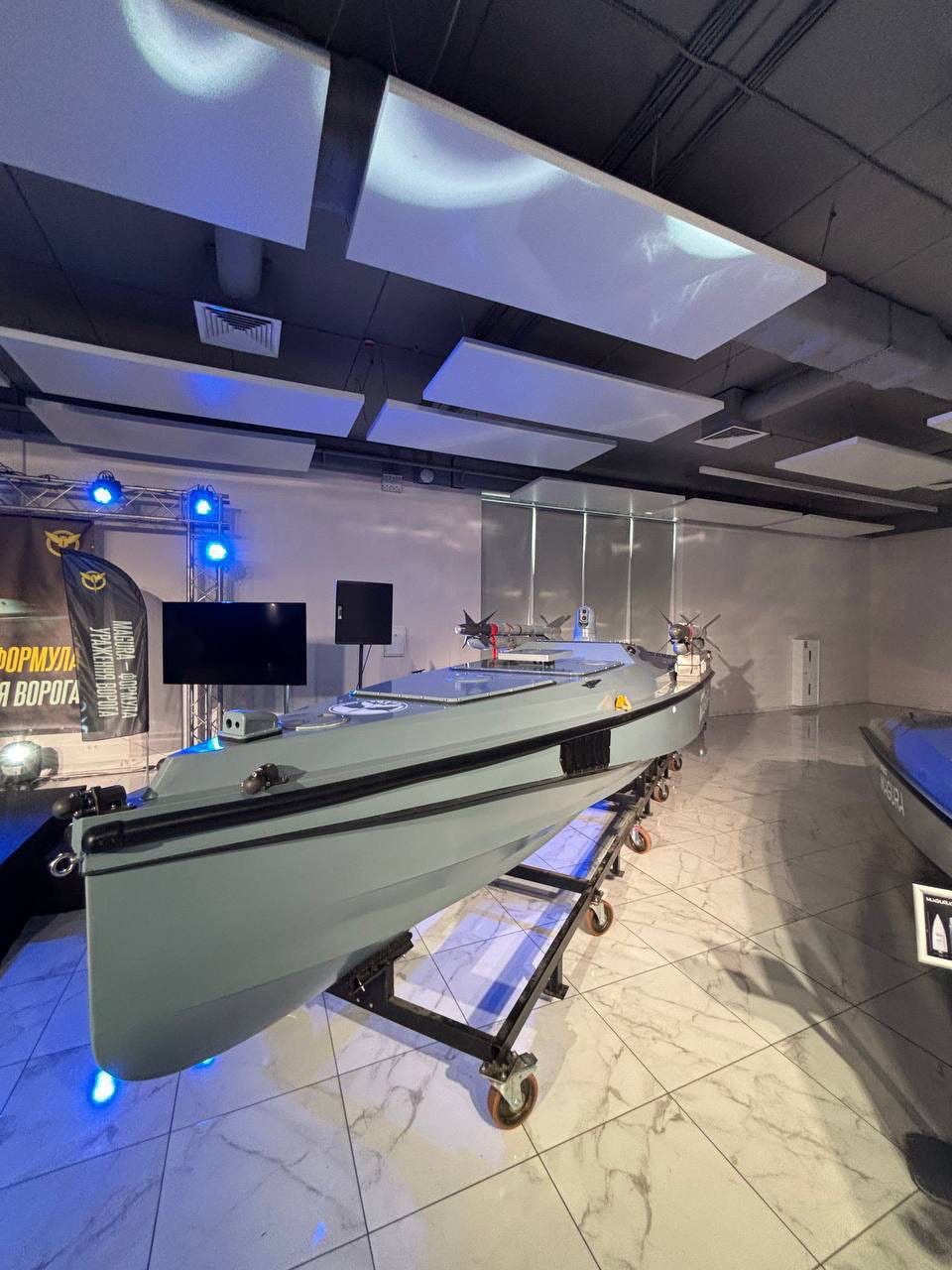
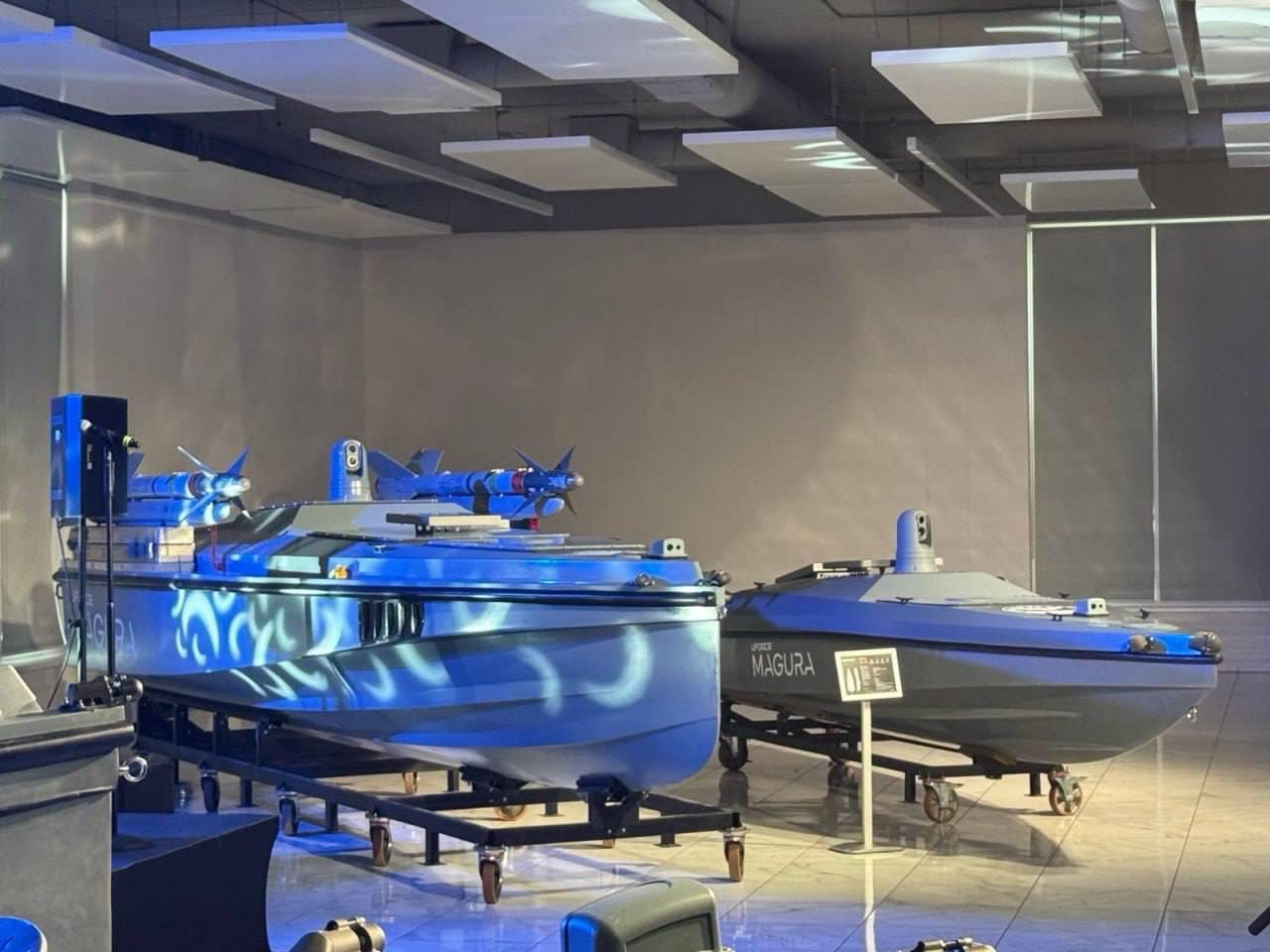

Hi Grumpy, thanks for the history of the Qirim. Zelenskyy has boxed Putin in. The world sees Putin is a coward. Punitive Sanctions on Russia and Russian supporters and increased weapons are needed. Russia is on the verge of financial collapse. Putin is not strong.